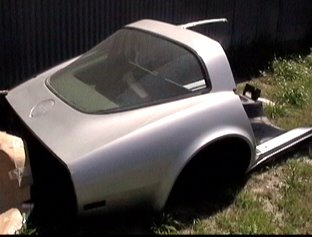A motor vehicle salesperson recently explained to me that there are 11 steps that dealers use to get the most money out of you that they can get in a deal. I call it 11 Steps Dealers Use to Rip You Off. Here are Steps 9 thru 11, along with some comments and tips to help you avoid wasting your money!
Step 1: Dealer Prep
Step 2: Sales Meetings at Dealership
Step 3: Meet and Greet the Customer
Step 4: Stealing the Trade-in During the Appraisal
Step 5: Qualify the Customer
Step 6: Land the Customer on a Car
Step 7: Work the Deal and the Customer (puts the customer in ether)
Step 8: The Turnover
Step 9: F&I Smokes the Paperwork
Just when you think you’ve got a deal, maybe even a good one, they turn you over to the one who really puts the screws to you: the "F & I manager," sometimes called a "Business Manager."
This person’s job is to take the deal you think you’ve got and make it even better ... for them, of course. They do this by "packing" (adding the cost into your deal without you realizing it) credit life insurance, disability insurance, service contract charges, "Gap" insurance, rustproofing, and other "soft" add-on’s (extra cost things that don’t add any value to the vehicle itself) into the deal. They know that if they do the job really good, you will never even know it’s happened to you until you get home and hours (or better yet, days or weeks) later, if you happen to look more closely at what you signed and find thousands of dollars of additional charges for things you didn’t realize were being added into the deal.
Why do they do it? Because a slick car dealer can make the highest profit margin not on the car, but in the F&I office.
As an example, the Credit Life insurance that has a premium charge of $800 probably has at least $400 pure profit to the dealer. The rustproofing, paint protection and fabric protection package that shows a cost of $895 probably only cost the dealer about $150 to $250 max --- and that assumes that it’s even on the car (have you ever really figured out if that fabric protection was anything more than a spray can of stuff they sprayed on the interior?).
Statistics show that the most money a car dealer makes, on any part of the deal in selling a car, is made in the F&I office. That’s why this person has a computer (which they can blame any "mistakes" on if you catch them), a warm and fuzzy picture of the spouse and kids, and a degree of some sort in a frame on the wall: it looks good, makes you feel comfortable with their professionalism, and gets you to relax (after all, an enema is more thorough if the patient is relaxed when he gets it put to him). If there is any room in a car dealership that you really need to be careful in, and watch your step, it’s here.
Tip: Don’t let the car dealer set up your financing at all. Go to your credit union where you often will get the lowest finance rate around. Not a member? Join one. Call all of them in your local phone book or
check online and find one you can join. It costs practically nothing and can save you thousands of dollars in high interest charges.
If you are going to let the dealer set up your financing, don’t buy any of the extra stuff they will try to sell you ... no matter how good they make it sound! You can get cheaper disability or life insurance from any insurance agent.
And that $1,500 extended warranty? First of all, if you must get one, never buy an extended warranty that isn’t actually from a vehicle manufacturer ... they cost too much, you get too little coverage, out of town dealers and repair shops often won’t honor it, and there is often no one who is really going to stand behind it. Those kind of extended warranties are sometimes called "P O Box warranties" because they operate out of a post office box with nothing behind it.
The dealer’s F&I office? Simple. It’s where you can expect to get ripped off the worst.
Step 10: Deliver the Iron
This is the fastest part of the process, because it is where the customer goes over the curb (hopefully before the customer finds out what has just been done to them) and there’s an old saying in the business: once it goes over the curb, it ain’t comin’ back!
The entire process is designed to put you behind the wheel and get you out the door. "Emotional ownership" they call it. That means you become emotionally "invested" in the car. Your friends and family and neighbors see you driving the new car. You start to brag about what a great deal you got and how they were so nice to you down at the car lot. Then it all comes back with a vengence when the hit you with the next step.
Tip: Never, never, never take a vehicle home unless everything that you want the dealer to do has been done. When they tell you that you need to make an appointment after the sale for the service department to install the special wheels or the upgraded stereo system or whatever, don’t buy it! If they want to sell it to you bad enough, they’ll find the time to get it done right away. You shouldn’t have to return to get things done to a vehicle that the dealer agreed to do as part of the sale. Make sure everything is done and done right before you take the keys and drive home.
Step 11: De-Horsing the Customer (The "Gimmee Back" Trick)
Just when you get comfortable, driving that new car, showing it off to your friends and coworkers and family, the dealer calls you up and tells you that there’s a slight problem: your loan didn’t go thru (never mind the fact that before you left the lot they told you your credit was already approved).
Now they tell you that the bank wants you to put more money down, or the bank has changed its interest rates, or they had to get your loan thru another bank and they need you to come down and sign another finance contract. The excuse can be almost anything ("the fax machine ate my copy of your contract" is a good one), but it often is just completely made up.
It’s called de-horsing you (like you take a "cowboy" off his horse, just as he settles into the saddle). They know you’ll balk and then do almost anything to keep from looking bad to your friends, family and neighbors (after all, are you really going to tell them that your credit wasn’t good enough to get the loan?). It can all be a scam designed to get more money out of you by doing things like increasing the interest rate on you (which is really set by the dealer in most cases, and not by the bank at all), or making you pay more money down, or rewriting the loan and packing something new in the deal ("the bank says they’ll approve the loan but only if you get an extended warranty to protect you in case the car breaks down when it is beyond the manufacturer’s warranty").
Tip: The point is, if they call you up after the deal is done, be careful. They could just be trying to get more money out of you and into their own pocket. Demand to know what banks are involved and who they talked to; call the banks and ask yourself; if it really is legit and you have to resign the finance contract, compare the new terms with the old terms (interest rate, loan length, monthly payment, total amount financed, total of payments --- all the numbers in the "federal box") and make sure that nothing, but nothing is changed. If it is, refuse to sign it and call us right away toll free 1.888.331.6422 or
email us! Chances are you may not have to give your new vehicle back at all, no matter what the dealer is telling you.
And don’t go down to the dealership with that new car that you thought you already owned, park it in your garage and take a cab! You won’t be the first one that they blocked in so you couldn’t get the car out when you refuse to resign their papers! When you show up without the car, you’ll have the leverage instead of the dealer.
Remember: be careful when you go shopping for a motor vehicle. If you think you’ve been ripped off, lied to or cheated, or if you bought a lemon car or lemon truck or lemon motorcycle, call us toll free 1.888.331.6422 or
email us for fast help. We know how to fight dealers and manufacturers ... we’ve been doing it since 1978.


